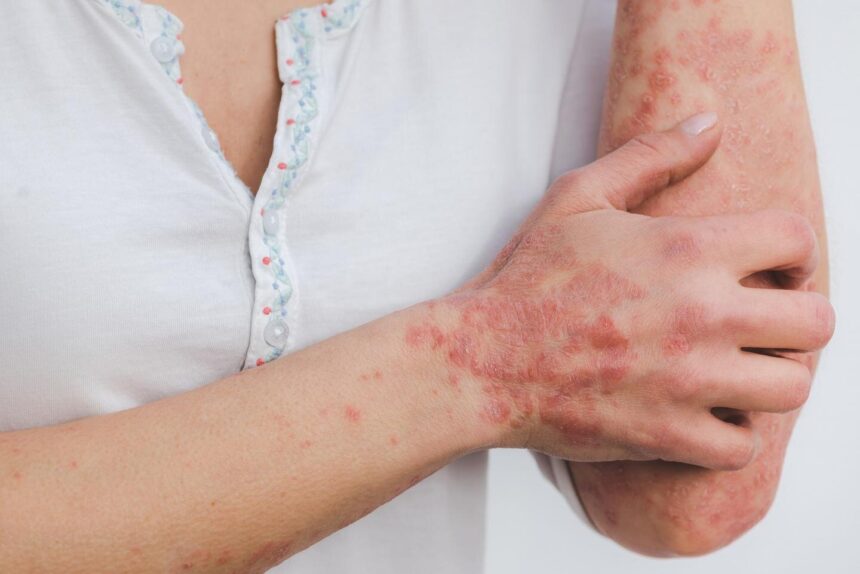Psoriasis is a chronic inflammatory skin condition that affects millions of people worldwide. Characterized by flaky patches of skin that form scales, psoriasis is believed to be caused by an issue with the immune system. Recently, a study conducted by researchers at King’s College London has shed light on the potential impact of diet on psoriasis severity.
The study, published in the British Journal of Nutrition, analyzed data from 257 adults with psoriasis who completed an online survey. Participants’ adherence to various diet quality scores, including the Mediterranean Diet Score, the Dietary Approaches to Stop Hypertension (DASH) score, and the Healthy Plant-based Diet Index, was assessed using a food frequency questionnaire. Psoriasis severity was self-assessed using a validated questionnaire.
The results of the study revealed significant associations between diet quality and psoriasis severity. Individuals with very low adherence to the DASH diet index and the Healthy Plant-based Diet Index were found to report higher psoriasis severity. Specifically, greater intake of red and processed meat was associated with more severe psoriasis, while increased consumption of fruits, nuts, and legumes was linked to less severe psoriasis.
Lead researcher Sylvia Zanesco, a Ph.D. student from the Department of Nutritional Sciences at King’s College London, emphasized the potential benefits of dietary interventions in improving patient outcomes. Incorporating dietary assessments into routine care could provide patients with additional support in managing their condition.
The DASH dietary pattern, which focuses on fruits, vegetables, whole grains, low-fat dairy foods, and lean meats while limiting salt, sugar, and saturated fats, was originally designed to lower blood pressure. Similarly, a high Healthy Plant-based Diet Index involves a diet rich in healthy plant foods and low in animal products and unhealthy plant foods.
Professor Wendy Hall, senior author of the study, highlighted the importance of incorporating dietary advice into standard clinical care for managing psoriasis symptoms. The research team plans to explore whether diets rich in healthy plant foods can reduce psoriasis symptoms in a controlled clinical trial.
Dr. Thivi Maruthappu, a consultant dermatologist and key investigator on the study, noted that many individuals with psoriasis are curious about the impact of their diet on their skin. This research brings us one step closer to understanding how dietary modifications can potentially improve psoriasis symptoms.
In conclusion, the findings of this study contribute to the growing body of evidence supporting dietary modification as a complementary strategy in managing psoriasis. By addressing dietary patterns, healthcare providers may be able to alleviate disease severity and enhance the quality of life for patients with psoriasis.








